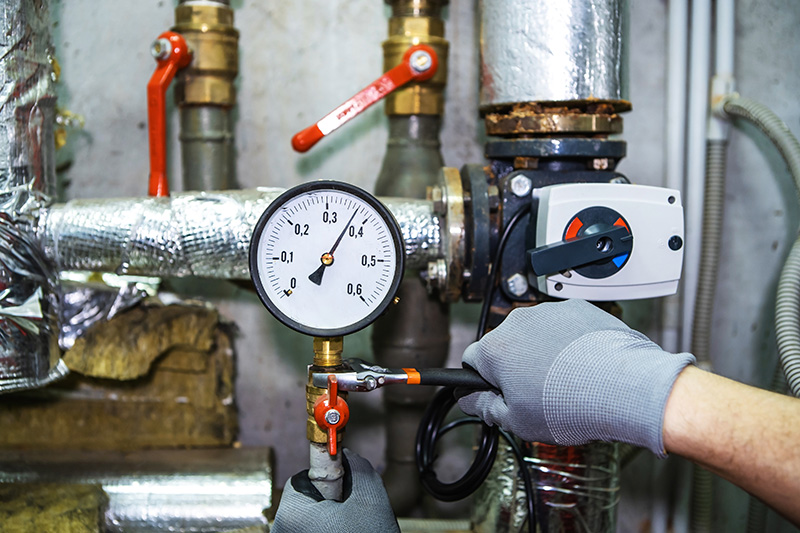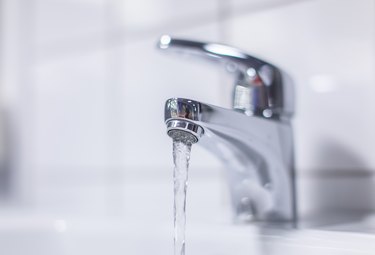Highly-Rated Methods for Fixing Low Water Pressure in Your Home
Highly-Rated Methods for Fixing Low Water Pressure in Your Home
Blog Article
What're your thoughts and feelings about Low Water Pressure in the House??

Low tide stress in your home can be a frustrating problem, affecting whatever from bathing to washing recipes. If you're experiencing weak water circulation, there are a number of possible reasons and solutions to check out. In this guide, we'll talk about usual reasons for low tide pressure and practical actions to address the problem effectively.
Intro to Low Water Stress
Low tide stress happens when the flow of water from your taps, showers, and other components is weaker than usual. This can make daily tasks extra difficult and much less effective. Understanding the causes of low water stress is vital to discovering the right service.
Usual Causes of Low Tide Pressure
Faulty Stress Regulatory Authorities
Pressure regulators are responsible for maintaining regular water stress in your home. If they malfunction, it can cause low tide stress or unequal circulation throughout the house.
Local Water Supply Issues
Occasionally, the trouble exists outside your home. Local water supply problems, such as main line leaks or upkeep work, can briefly decrease water stress in your location.
Pipeline Obstructions
Gradually, pipelines can become obstructed with natural resource, sediment, or debris, restricting the flow of water. This is an usual issue in older homes with galvanized steel pipes.
Rust
Rust within pipes can lead to leaks and minimized water stress. Rust build-up can restrict water circulation, particularly in maturing plumbing systems.
How to Identify Low Water Pressure
Evaluating Pipelines
Evaluate noticeable pipelines for indications of leaks, rust, or obstructions. Take notice of any type of unusual audios, such as knocking or rattling pipelines, which can show concerns within the plumbing system.
Consulting with a Plumber
If you're unable to pinpoint the reason for low water stress, think about hiring an expert plumber to conduct a complete inspection. They can determine underlying problems and advise ideal remedies.
Checking Taps and Components
Start by checking the water pressure at different faucets and components throughout your home. If the issue is separated to certain locations, it might suggest local problems.
Do It Yourself Solutions to Deal With Low Water Pressure
Flushing Hot Water Heater
Sediment build-up in the water heater can restrict flow and reduce efficiency. Purging the storage tank periodically aids get rid of debris and preserve optimal performance.
Inspecting Pressure Regulator
Ensure that the stress regulatory authority is operating properly. Readjusting or replacing the regulator can aid restore appropriate water pressure throughout your home.
Cleaning Up Aerators and Showerheads
Natural resources can build up in aerators and showerheads, minimizing water circulation. Remove and clean these components routinely to boost water pressure.
Clearing Up Clogs in Pipes
For small clogs, try making use of a plumbing snake or chemical drain cleaner to clear obstructions in pipes. Be cautious when making use of chemicals and adhere to security standards.
When to Call a Specialist Plumber
If do it yourself initiatives fall short to settle the problem or if you think substantial plumbing troubles, it's ideal to seek help from an accredited plumber. They have the proficiency and devices to address intricate issues safely and efficiently.
Preventive Measures to Maintain Water Pressure
Installing a Stress Booster
Take into consideration setting up a pressure booster pump to improve water stress in locations with constantly low flow. This can be particularly helpful for multi-story homes or residential properties with high-demand components.
Monitoring Water Use
Bear in mind water usage practices and avoid ill-using the plumbing system. Simple adjustments, such as shocking showers and washing lots, can help maintain adequate water pressure.
Regular Maintenance
Arrange routine upkeep for your plumbing system to prevent concerns such as corrosion, leaks, and blockages. Dealing with minor troubles early can help avoid even more substantial repair work later.
Final thought
Managing low water stress can be aggravating, however recognizing the underlying causes and carrying out ideal solutions can restore optimum flow throughout your home. Whether it's cleansing aerators, examining pipelines, or consulting with a plumber, taking proactive steps can make sure a stable supply of water for your day-to-day demands.
How to Fix Low Water Pressure In Your Home
Municipal Water Supply Issues
Scheduled maintenance, high demand, and water main breaks are all potential causes for low water pressure within a city or county’s water lines. While there’s not much you can do to personally fix a problem with your city or county’s water supply system, you can play a big role in documenting the issue and alerting those who can.
How to fix it:
Ask your neighbors if they are experiencing any issues with low water pressure. If multiple homes are affected, it’s likely related to the city’s water line. Contact the local Water Authority to see if there is any maintenance taking place that might be affecting your supply. Also let them know of your specific issues. If other homeowners report the same issues, they’ll know that there could be a larger issue to look into. Faulty Fixtures
A damaged or clogged shower head, faucet or appliance is the first thing we’d suggest checking, especially if low water pressure appears to be isolated to a specific area of your home.
How to fix it:
First, turn off the main water supply to your home. Check the affected appliances for build-up or debris. In the case of a faucet, you can simply unscrew the aerator at the tip of the faucet. Showerheads should be fully detached from the water pipe. While the appliances are detached, you may want to check the water supply to determine if the fixtures were in fact the issue. To clean, soak the showerhead or aerator in vinegar and brush off any visible debris. Reattach the fixtures and check the water pressure again. If it is still low, there is likely a deeper issue at hand, which can be determined by a professional plumber. Pipe Obstructions
Mineral deposits, rust or other debris within water pipes can lead to blockages or corrosion over time.
How to fix it:
When you think of a clog, you probably think of a drain clog. While there are many DIY solutions to clearing a drain, clogs in a water pipe will almost always require the help of a professional plumber. A plumber will be able to locate the affected pipe and clean out any debris or mineral deposit buildup. In severe cases, the pipe may need to be replaced. Your plumber might also recommend a water softening system to remove the minerals from your home’s water supply that can contribute to pipe blockages over time.
Plumbing Leak
Undetected water line leaks can divert water away from your residential pipes, reducing the water pressure in your fixtures.
How to fix it:
Check your water meter by turning off all water sources and monitoring the meter for any movement, which could be a clear indicator of a potential leak. Check all visible pipes for signs of leaking, including water stains, active dripping or damp spots around the pipe. Inspect fixtures, including faucets and showerheads, for any drips. Test the pressure but recording the pressure with the main water valve shut off. Leave off for a few hours and test again. A significant drop in pressure is a clear sign of a leak. https://kiddcoplumbing.com/plumbing-blog/how-to-fix-low-water-pressure/

I came across that content on when doing a search on the search engines. Enjoyed our posting? Please share it. Help another person discover it. Thanks so much for your time invested reading it.
Book Report this page